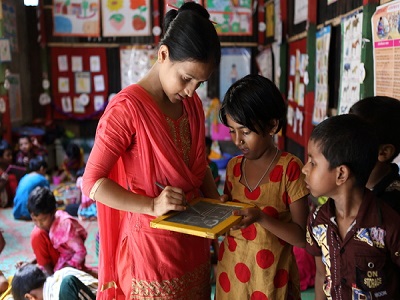Cover image: © UNICEF/UNI190224/Bindra
Through
this online e-course of RBM for Inclusive Social Development, learners
will have a better understanding of RBM principles to better design,
implement, monitor and report on results
within the public sector. Learners will learn the concepts in RBM,
Equity, Inclusion and the SDG 2030. Additionally, learners will be able
to relate how RBM for ISD approach can help governments achieve
inclusive results in the public sector. This course is
intended as a brief pre-face before the delivery of a facilitated RBM
workshop be it face-to-face or blended (virtual and facilitated by
resource persons).
Learning objectives
Audience
Government employees at national or sub-national levels seeking a basic understanding of RBM and its applications to public sector.
Length
11 modules - total learning time of 5 hours
Methodology
Self-Pace learning
Structure
Module 1 - Introduction to Inclusive Social Development
Module 2 - Inclusion
Module 3.1 - Prioritization and Causality
Module 3.2 - Theory of Change
Module 3.3 - Results Framework & Measurement Framework
Module 4 - Aligning Results and Resources
Module 5 - Results-based Implementation
Module 6 - Measuring for Results
Module 7 - Reporting on Results
Module 8 - Evaluation
Contact details
For content queries, please contact:
Cairan O'Toole, Chief of Programme and Planning, a.i., cotoole@unicef.org
Faizah Samat, Planning and Monitoring Specialist, ROSA fsamat@unicef.org
Dovan Lawoti, Planning Officer, ROSA dlawoti@unicef.org
